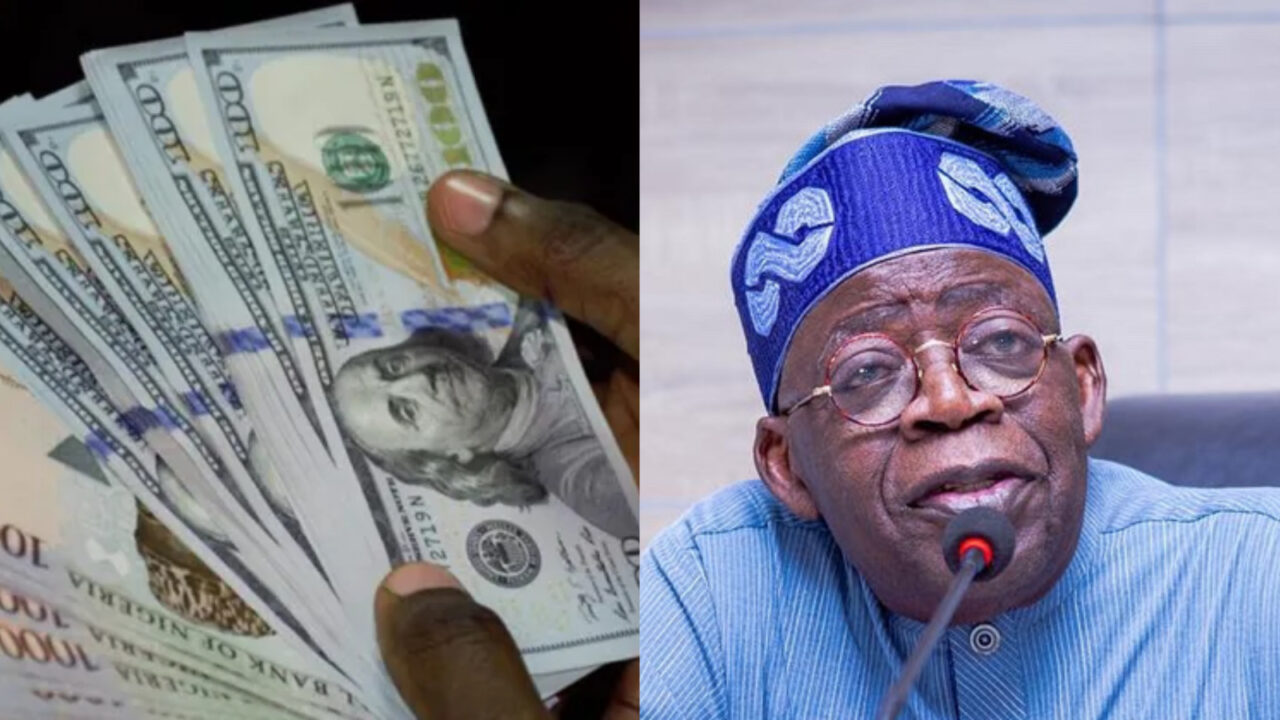Dollar to Naira exchange rate for today, Wednesday 28 June 2023 has been obtained by this reporter.
Newsonline Nigeria has obtained the official dollar to the naira exchange rate in Nigeria today, including the Bureau De Change (BDC) rate and CBN rates.
What Is The Official Exchange Rate For Dollar To Naira Today?
This Nigeria News platform understands that the dollar rates in the investors’ and exporters’ window of the official market and that of the Bureau De Change (BDC) window in the black market continue to converge.
The exchange rate between the naira and dollar on the official Investor & Exporter Window closed at N763/$1 ahead of the Sallah Break.
According to data from the FMDQ Securities Exchange, the naira opened at N760.5 per dollar at the investor and exporter (I&E) window but weakened to close at N763/$1.
The intra-day high and lows recorded during the day were N841/$1 and N467/$1 respectively as investors continued their price discovery quest.
Newsonline Nigeria reported earlier that an intra-day high of N840/$1 was recorded on Monday, June 27th, 2023 but has now been overtaken by the N841/$1 intra-day high recorded on Tuesday.
Market turnover rose to $245.6 million on Tuesday, marking the highest volumes of trade recorded during the day.
While the intra-day highs remain a concern for some analysts, the exchange rate also appears to be itching closer to price discovery after closing at N763/$1 on Tuesday.
Newsonline Nigeria checks indicate the exchange rate has closed between N756/$1 and N770/$1 in the last 6 trading days which indicates a 1.8% depreciation band.
Meanwhile, the dollar rate in the black market followed that of the investors’ and exporters’ window closely, as Naira Rates, a parallel market aggregator put the average rate at N764.3/$1, up from N768.4/$1.
While the naira gained against the dollar in the black market, the Nigerian currency fell against the British pound and the euro.
Data obtained from the Naira Rates disclosed that the naira to pound average rate was N993.7/£1, as the British currency appreciated by 0.08 per cent in value, from N992.9/£1.
In addition, the European currency, the euro, was sold at an average rate of N850//€1. This means the price of the euro inched higher by N1.2 kobo from N848.8/€1.
Newsonline Nigeria reports that the Central Bank of Nigeria (CBN) on Wednesday 14th June 2023 announced the unification of all segments of the forex exchange (FX) market.
In a circular, the CBN said all FX windows are now collapsed into the investors & exporters (I&E) window.
According to the apex bank, the move is part of a series of immediate changes to operations in the Nigerian FX market.
The statement read, “Abolishment of segmentation. All segments are now collapsed into the Investors and Exporters (I&E) window. Applications for medicals, school fees, BTA/PTA, and SMEs would continue to be processed through deposit money banks.
“Re-introduction of the “Willing Buyer, Willing Seller” model at the I&E Window. Operations in this window shall be guided by the extant circular on the establishment of the window, dated 21 April 2017, and referenced FM/DIR/CIR/GEN/08/007. All eligible transactions are permitted to access foreign exchange at this window.
“The operational rate for all government-related transactions shall be the weighted average rate of the preceding day’s executed transactions at the I&E window, calculated to two (2) decimal places.
“Proscription of trading limits on oversold FX positions with permission to hedge short positions with OTC futures. Limits on overbought positions shall be zero.
“Re-introduction of order-based two-way quotes, with bid-ask spread of N1. All transactions shall be cleared by a Central Counter Party (CCP).
“Reintroduction of Order Book to ensure transparency of orders and seamless execution of trades.
“The operational hours of trades shall be from 9am to 4pm, Nigeria time.”
The apex noted that further guidance on the operational changes would be communicated to authorised dealers and the general public in due course.
The changes to operations in the country’s FX market implies that Nigeria has eased its control of the naira, allowing the local currency to freely float.
Meanwhile, a free-floating exchange rate occurs when a government allows the exchange rate to be determined purely by market forces and there is no attempt to ask the central bank to influence the external value of the exchange rate.














